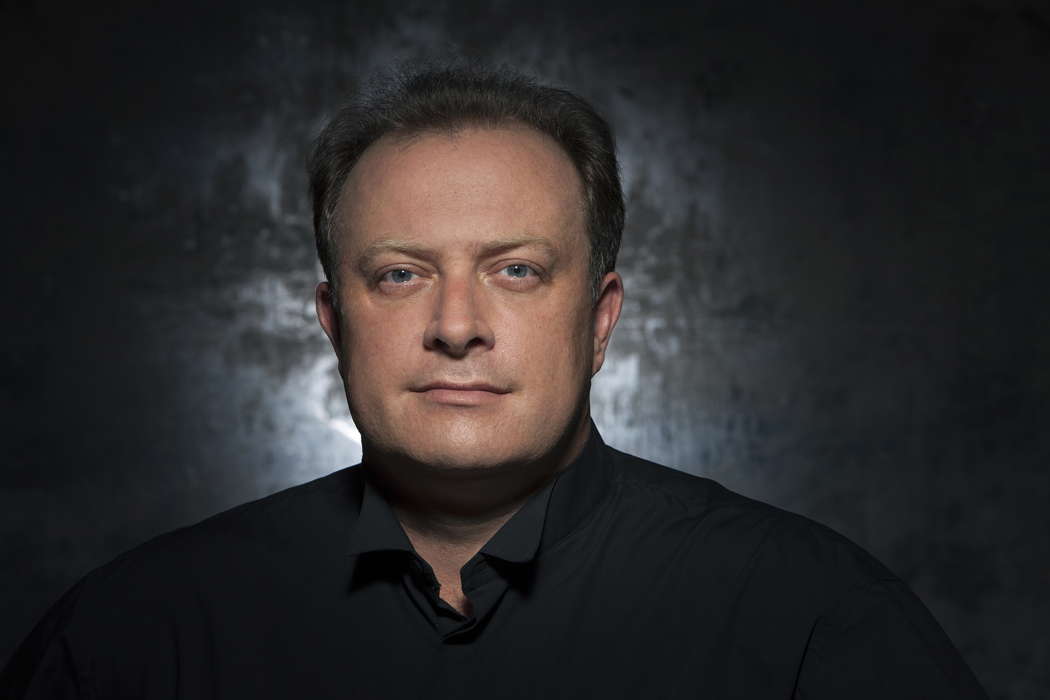 SPONSORED: A Seasoned Champion of New Music. Argentinian-American pianist Mirian Conti in conversation with Andrew Schartmann.
SPONSORED: A Seasoned Champion of New Music. Argentinian-American pianist Mirian Conti in conversation with Andrew Schartmann.
All sponsored features >>
 DISCUSSION: What is a work? John Dante Prevedini leads a discussion about The performing artist as co-creator, including contributions from Halida Dinova, Yekaterina Lebedeva, Béla Hartmann, David Arditti and Stephen Francis Vasta.
DISCUSSION: What is a work? John Dante Prevedini leads a discussion about The performing artist as co-creator, including contributions from Halida Dinova, Yekaterina Lebedeva, Béla Hartmann, David Arditti and Stephen Francis Vasta.
- Jan Pieterszoon Sweelinck
- Coventry
- Venezuela
- North Korea
- Bruno Ducol
- Zoom
- Robert Miller
- Stockholm Philharmonic Orchestra
Metamorphic Variations
MIKE WHEELER listens to orchestral music by Arthur Bliss and an illustrated talk by Stephen Johnson
Like Shostakovich, Sir Arthur Bliss died fifty years ago this year. His last orchestral work, and one of his least familiar, Metamorphic Variations, from 1972-3, was the subject of writer and broadcaster Stephen Johnson's latest Discovering Music event - Royal Concert Hall, Nottingham, UK, 26 February 2025. It followed the usual pattern - he talked us through the piece, drawing our attention to particular features, with the BBC Philharmonic Orchestra on stage to provide illustrations, and to give a complete performance after the interval. Michael Seal, Associate Conductor of the City of Birmingham Symphony Orchestra, replaced John Wilson, who had to withdraw for personal reasons.

Michael Seal. Photo © 2016 Eric Richmond
We began with an imposing account of the Overture to Bliss's ballet score Miracle in the Gorbals, composed in 1943 for dancer and choreographer Frederick Ashton. Set in Glasgow's dockland, it comes across, on paper, as a rather heavy-handed religious allegory, an impression the Overture reinforces.
Introducing the Variations, Stephen Johnson commented that interest in Bliss is growing again after a period of relative neglect. He touched on the composer's early enfant terrible reputation, with works like Rout, for soprano and ensemble, and A Colour Symphony, his World War I experiences, which fed into his choral symphony Morning Heroes, his becoming a Roman Catholic, and his musical style turning more conservative in his later years.

Stephen Johnson
The performance of the Variations we were to hear would include the two additional variations published as a supplement to the score, which can be inserted after Variation 4 if the conductor chooses, but which are scarcely ever played.
The opening oboe theme has, in Johnson's words, 'a sense of potential', the term metamorphic referring to a process he described as 'more fluid and subtle' than the usual process of variation. He then touched on the work's dedication to Bliss's friends George Dannatt, a British abstract painter, and his wife, Ann.
After we heard the oboe theme again, he picked out some of the subsequent variations - 'Polonaise', with its curious added castanet part, the heavier rhythms of 'Funeral Procession', which prompted the intriguing comment that it moved 'into spaghetti western territory', and 'Contemplation', an example of Bliss's 'fabulous ear for orchestral colour'.
A brief discussion between Stephen Johnson and Michael Seal mentioned the problems of getting to know the piece in such a short time, and how the two additional variations fitted with the rest. It was not always easy to hear what was being said, as Seal was not provided with a microphone.
It was a pity there was no room on the information sheet to list the titles of the individual variations, Stephen Johnson did not go through each one in turn, as I was expecting, and which might have been more helpful to those coming new to the work.
The first half was rounded off by one of Bliss's best-known pieces, the march from his film score Things to Come, vigorously played.
The full performance of Metamorphic Variations began with that oboe solo sounding both graceful and searching, with ghostly woodwind in the background. 'Ballet' was full of scurrying figures, 'Assertion' was marked by taut rhythms, and 'Speculation' was suitably enigmatic. In the two additional variations, the woodwind and xylophone lines of 'Contrasts' were firmly etched, and 'Children's March' included eloquent violin and flute solos. 'Scherzo 1' scampered merrily along, 'Contemplation' offered a breathing space before the strutting 'Polonaise', whose castanet part made it sound more like a bolero than anything else. The sombre, brooding 'Funeral Processions' had unmistakeable echoes of Holst's 'Saturn', and there was also a Holst effect in 'Cool Interlude', with its viola solo, and flute and glockenspiel colouring. Propulsive, chattering rhythms animated 'Scherzo 2', while 'Duet' was a graceful pas de deux for solo violin and cello. The brief fanfare that is Variation 13, sounding out the work's dedication to George and Ann Dannatt, had a sense of affectionate grandeur. The concluding 'Affirmation' gave us Bliss's way with the grand manner, but also made me conscious of a tendency to over-score. The return of the opening oboe theme at the end was a touching conclusion.

Arthur Bliss in circa 1922.
Photo by Herbert Lambert
Metamorphic Variations is not a particularly easy work to get to know. I'm not there yet, but it is full of characteristic Bliss touches, and I shall certainly come back to it.
Copyright © 7 March 2025
Mike Wheeler,
Derby UK



